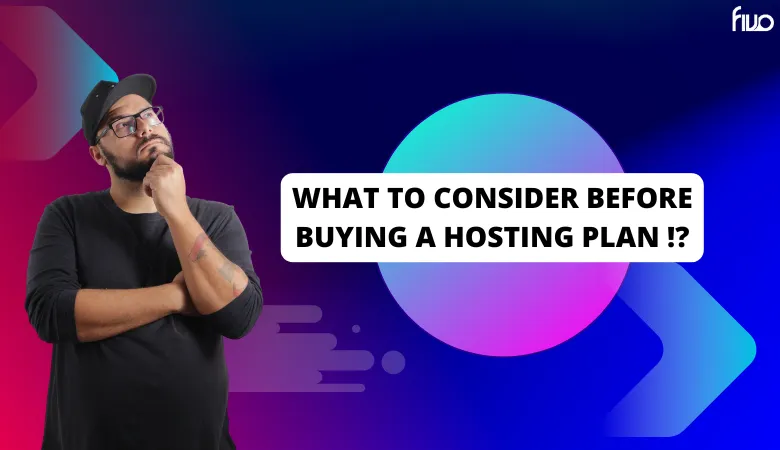
Choosing the right hosting plan is one of the most important decisions you’ll make when launching a website. At CloudFivo, we believe a good hosting foundation can make or break your online success. Whether you’re starting a blog, an e-commerce store, or a corporate site, here are the key things you should consider before buying a hosting plan:
1. Understand Your Website’s Needs
Not all websites are created equal. A small portfolio site doesn’t need the same resources as a busy online shop. Ask yourself:
How much traffic do you expect?
Will your website store a lot of media files?
Do you need special software (like WordPress or WooCommerce)?
2. Types of Hosting
There are several types of hosting services, and choosing the right one depends on your goals:
Shared Hosting – Affordable but limited in resources. Best for small websites.
VPS Hosting – Offers more control and performance. Great for growing businesses.
Cloud Hosting – Scalable and reliable, perfect for high-traffic or mission-critical websites.
Dedicated Server – Full control and maximum performance. Ideal for large-scale projects.
3. Performance and Speed
Website speed affects SEO and user experience. Make sure your hosting provider uses:
SSD storage
Optimized server configurations
A content delivery network (CDN)
Data centers close to your target audience
4. Uptime Guarantee
Downtime can hurt your brand and revenue. Look for a hosting provider that offers a minimum 99.9% uptime guarantee and has real-time monitoring.
5. Security Features
Security is non-negotiable. Check if the hosting includes:
Free SSL certificates
Daily or weekly backups
Firewall and DDoS protection
Malware scanning
6. Customer Support
Things can go wrong—fast, reliable support is essential. Choose a hosting provider that offers:
24/7 live support
Knowledgeable staff
Fast response times
7. Scalability
As your business grows, your hosting should grow with it. Choose a provider that allows easy upgrades without downtime.
8. Pricing and Hidden Fees
The cheapest option is not always the best. Look out for:
Renewal prices
Additional costs for backups or email
Hidden fees for exceeding bandwidth
9. User-Friendly Control Panel
Managing your website should be easy. A good hosting plan comes with cPanel, Plesk, or a custom dashboard that makes it simple to install apps, manage emails, and monitor performance.
10. Reputation and Reviews
Do your research. Look at independent reviews and customer feedback to get a feel for the hosting company’s reputation.
